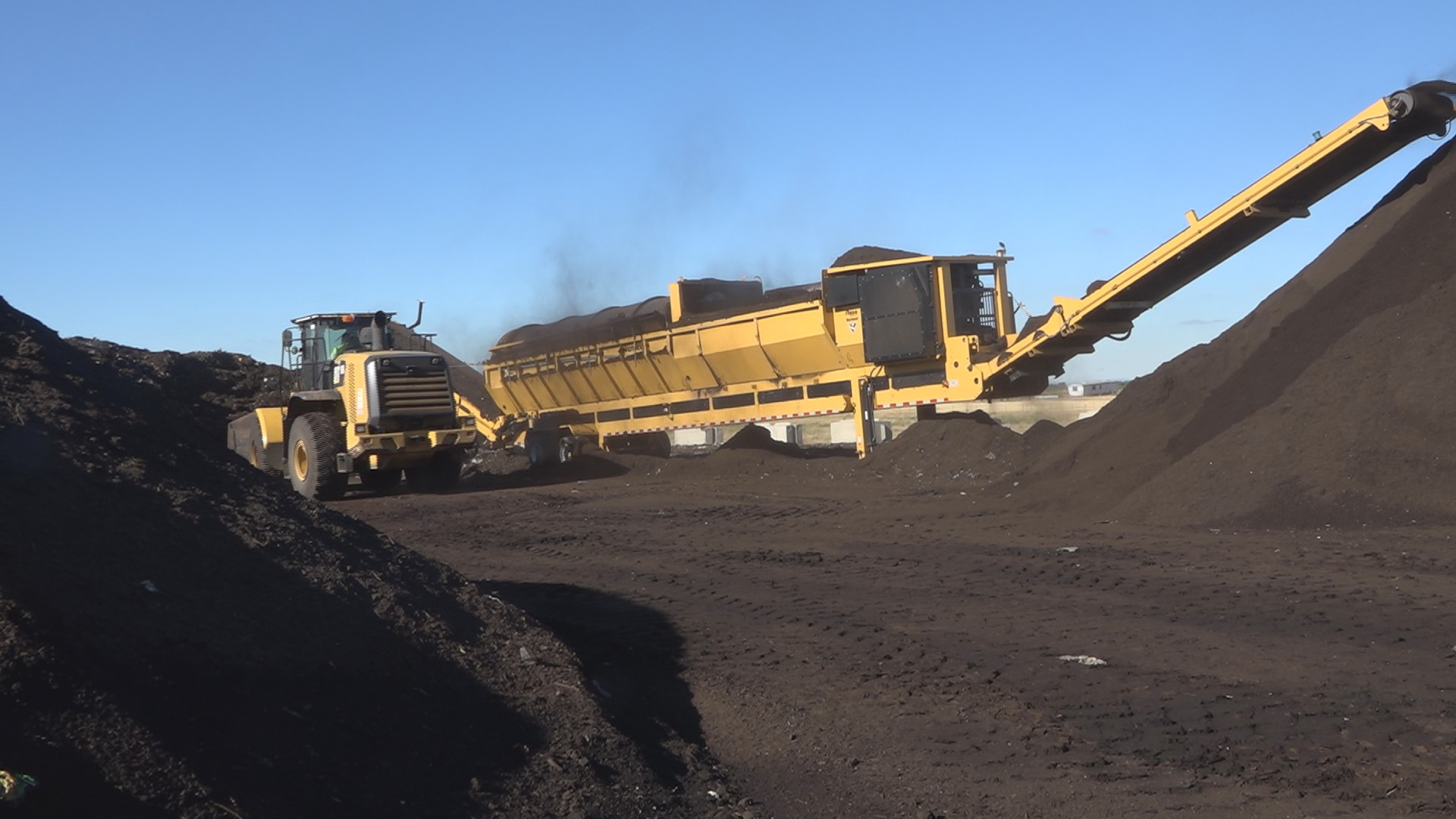WHEATLAND, Calif. — At the site of Recology Ostrom Organics in Wheatland, all the yard and organic food waste from Butte, Colusa, Sacramento, Sutter and Yuba counties is dumped and turned into nutrient-dense compost.
"It started out as banana peels and coffee grounds, eggshells, sticks and leaves," said Robert Reed with Recology.
Several piles of the rich and earthy compost fill 10-15 acres at the facility. It all begins as food going into the green waste bin. Site supervisor David Stroud says they get nearly 230 tons of it every day.
"It goes through a process, takes about 60 days. We grind it, we put it on air, we roll it up, we turn it, and then the final process before we move the material is screening it," said Stroud.
He says microorganisms also play a big role in the composting process.
"Microorganisms actually break down the material that is in the compost so with the food and the water, it feeds them and the air helps it break down the microorganisms, turns it into the compost that we have here," said Stroud.
So why throw food into the organic waste bin instead of the garbage? Well, it's a requirement now in the Sacramento area as of last week.
Additionally, Reed says it pays dividends to the environment by reducing methane emissions, helps farms grow healthier and higher quality foods, and is also one of the most effective ways to help California conserve water amid a worsening drought.
"Good quality compost is a natural sponge. It attracts and retains water," said Reed. "Just the compost we make today in California applied to the land saves 3.7 billion gallons of water a year, so the more we can compost collectively all together, the more we can help farms save water, the more we can help California save water."
After food waste is turned into compost, more than 90% of it goes to farms while the remainder goes to landscaping and supply yards, according to Reed.
"This is a model for the nation, it's a model for the world, we're changing the way the world does garbage," said Reed.
"Be part of the solution, not the problem," said Stroud.
According to the Rodale Institute, farms that use compost can grow up to 40% more food during drought periods.



















